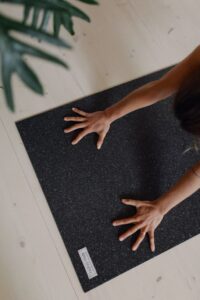The first time I heard someone say, “I’m not a morning person,” I remember being momentarily stunned. Not in a dramatic, jaw-dropped kind of way, but in that slow-blink, confused kind of way where your brain tries to catch up with a new concept. I must have been a teenager. It was such a casual sentence, said with all the weight of something universally understood like gravity or Mondays being dreadful. But for me, it was a revelation.
Wait… not being a “morning person” is a thing?
People used this as a legitimate reason or excuse not to do certain things before noon? Fascinating.
I had never really thought about it before. Morning, noon, night… I just kind of existed through them all. So the idea that someone could identify with one part of the day, almost like a zodiac sign or love language, was amusing and intriguing to me.
So, what does it mean to be a morning person?
The phrase is thrown around so much now that it’s almost a personality type. Morning people wake up chipper. They sip tea or coffee before the sun rises, maybe do a sunrise jog, journal, get a head start on emails, or make aesthetically pleasing breakfasts that somehow involve fruits or oats. They are energetic. Focused. Smug, even (just kidding… but am I?).
Then there are the night owls, those mystical creatures who suddenly come alive at 10 p.m., not just the ones who party late but also those whose thoughts unfold best under the quiet of the night. They write, create, solve, and reflect while the world is asleep. For them, joy cometh not in the morning but in the midnight hours 😂; they get their best ideas when others are preparing for bed. Their creativity often dances best under the moonlight, but there’s more nuance than this binary suggests.
There are people who peak in the afternoon. People who thrive in the evening. People who wake up early but are miserable about it. And people like me, who don’t quite fit into any label but know one thing for sure: I don’t like noise, especially not in the morning.
When I say I don’t know if I’m a morning person, it’s not because I don’t wake up early; I do, sometimes. I can function at full capacity at 6 a.m. or 11 p.m. or anywhere in between. What throws me off is not the hour; it’s the energy around me. I like my mornings quiet.
Not necessarily slow, not necessarily indulgent. Just… quiet.
The kind of quiet where you can hear your thoughts without having to fight for them. Where the world is still gathering itself and hasn’t started shouting its expectations yet. Where you’re not being pulled in five different directions and you can ease into the day like slipping into a warm bath.
So, when someone asks, “Are you a morning person?” I honestly don’t know how to answer. Because I think we’ve turned a simple concept into a performance. It’s not really about time; it’s about how we feel in that time.
The Quiet Morning Type
If there’s one label I’d reluctantly accept, it would be this one: quiet morning person. I’m not jumping out of bed ready to conquer the world, but I do appreciate the peacefulness of the early hours. The kind of morning where I can stretch, make tea, not speak to anyone, and slowly unfurl my mind like a well-folded letter.
It’s less about productivity and more about peace.
I know people who hate mornings not because they’re physically tired but because the world starts yelling too early. Traffic, emails, meetings, demands—it’s like being shoved into a crowd before you’ve even opened your eyes fully. Maybe it’s not that we’re not morning people. Maybe we’re just not chaos people. And unfortunately, mornings are often the messiest time of the day.

Let’s talk science for a minute.
Our bodies do have natural circadian rhythms: internal clocks that influence when we feel alert or drowsy. Some people genuinely are wired to wake up earlier and perform better in the morning. Others feel their best and most creative late at night. But you need to get this: those rhythms are influenced by environment, lifestyle, stress, and even age. Teenagers often have delayed circadian rhythms, which is why 8 a.m. school starts are biologically unfair. As we age, some of us shift earlier. Others don’t.
It’s funny how much our natural rhythms can mirror our personalities or temperaments. Some people, often the classic morning people, thrive on structure, love ticking things off early, and feel most energised when the world is just waking up. Others, especially the night owls, come alive when things quiet down, their minds buzzing with ideas while everyone else is asleep.
Then there are the in-betweeners: those who aren’t bound by clocks but by mood, energy, or even the emotional weather of the day. Whether you’re more introverted and enjoy calm starts or more extroverted and draw energy from midday movement, your temperament often plays a role in shaping when you feel most yourself. It’s not just about sleep, it’s about alignment.
So this whole “I’m not a morning person” thing? It might be true for now, but it’s not set in stone. We change. Our schedules change. Our needs change. And sometimes, it’s not about biology at all; it’s about boundaries.
Let’s give a moment of appreciation to the underrated group, Afternoon people: the slow risers who spend their mornings in a fog, sipping coffee more out of obligation than effectiveness. By lunchtime, they’re finally alert, and by 2 p.m., they’re in their groove: calm, focused, and quietly powerful. These are the folks who don’t mind easing into the day, skipping the early rush, and hitting their peak when the world has already settled into its rhythm.
They’re often overlooked in the productivity conversation, which tends to glorify early risers or romanticise night owls. Afternoon people have cracked the code of balance, finding momentum just when everyone else is beginning to fade.
The truth is, neither group is better. Neither is lazy. Neither is a more valid way of existing.
We’ve been conditioned to believe that productivity must start early and end late and that those who function outside that structure are doing something wrong.
Well, they’re not. We all have different energy cycles, and trying to force them into a single mould is like expecting every flower to bloom at sunrise.
You know what I’ve realised? It’s not about when I wake up. It’s about how the day greets me.
If I could have a morning that starts slow, without loud talking, without ringing phones or urgent tasks being thrown at me, then I’m okay. Better than okay, actually—I’m peaceful, balanced, and grounded.
I’ve done full-on brainstorming sessions at midnight. I’ve finished projects at 3 a.m. with a bowl of cereal by my side. I’ve also had deeply productive mornings, writing before the sun came up while everything was still half awake.
So am I a morning person?
Not exactly.
Am I a night person?
Not really. I’m an “I-just-need-some-quiet” person.
Productivity ≠ Worth
One of the things we tend to do is tie our self-worth to our most productive hour.
Early risers get praised. “Oh, you’re so disciplined!”
Late sleepers get shamed. “You’re wasting the day!”
But productivity isn’t a virtue in and of itself; it’s just a tool. And if you know how to use your personal energy cycle wisely, you’re doing just fine. Whether you peak at 6 a.m. or 11 p.m., what matters is that you know yourself. The world is not a one-size-fits-all, and neither is your clock.
If you’re reading this and thinking, “I’m not sure what I am either,” here’s a gentle suggestion: start observing.
- When do you naturally feel alert or creative without forcing it?
- When do you feel sluggish no matter how much sleep you’ve had?
- What kind of environment brings out your best?
Pay attention to your patterns. You might be surprised to learn that you don’t fit the labels either. You might be like me, a blend of rhythms that shifts with seasons and priorities, and that’s absolutely okay.
Rather than asking, “Are you a morning person?” Maybe we should ask:
- When do you feel most alive (energetic/focused)?
- What time of day makes you feel most like yourself?
- What kind of energy helps you thrive?
Those are far more interesting and useful questions than trying to squeeze ourselves into categories that don’t even capture the full picture.
So no, I’m not a morning person. Or a night person. I’m just a person who values quiet, who thrives in peace, and who has finally stopped trying to explain or justify my rhythm to anyone.
And maybe that’s the best kind of person to be.
What’s your ideal time of day, and do you think these labels really define us?
For those “night owls” who want to transition to “early birds”, you can read up on this article, How to Become a Morning Person
Thank me when you see results. 😉
Stay frosty!




